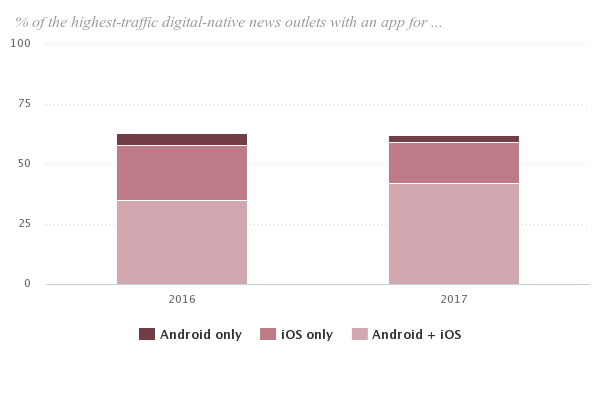Sites do not appear to be increasingly building native apps: The percentage of top digital-native news sites with an app remained steady between 2016 and 2017, at 61 percent:

This does not appear to include responsive sites: “For mobile apps, researchers searched the Google Play and iOS App Store for each site,” according to the fact sheet’s methodology.
Other publishing methods are more popular:
Fully 97 percent of these outlets offer newsletters, and 92 percent have an official presence on Apple News. Three-quarters, meanwhile, release podcasts and 61 percent allow comments on their articles.
The full fact sheet is here. Pew also released two other new fact sheets — one on public broadcasting, one on Hispanic and African American news media — on Monday. (These fact sheets, with staggered releases, have taken the place of what was once Pew’s giant annual State of the News Media report.)
Leave a comment